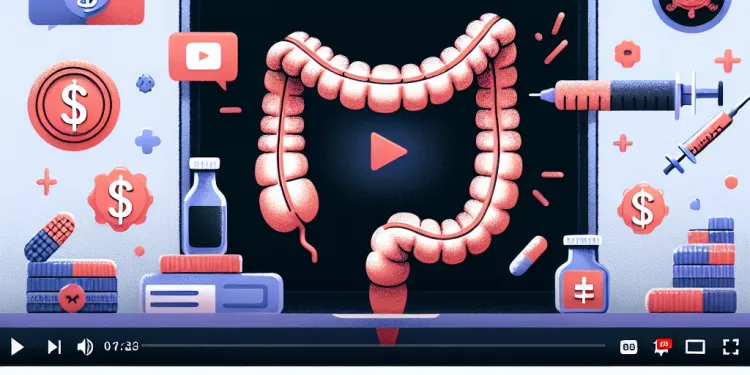
Find Help
More Items From Ergsy search
-
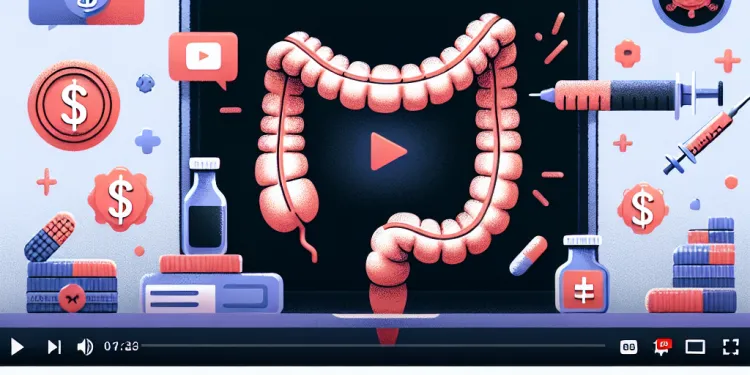
What causes Crohn's disease?
Relevance: 100%
-

Is Crohn's disease contagious?
Relevance: 87%
-
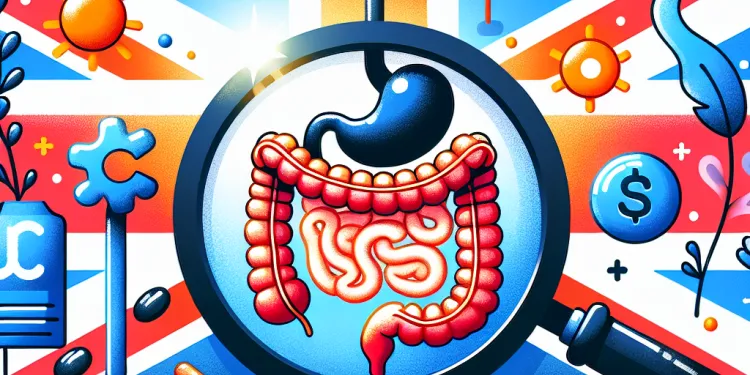
Is there a cure for Crohn's disease?
Relevance: 85%
-
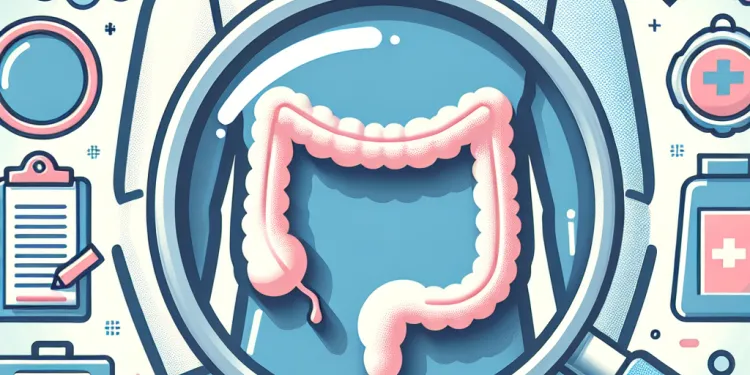
How is Crohn's disease diagnosed?
Relevance: 81%
-
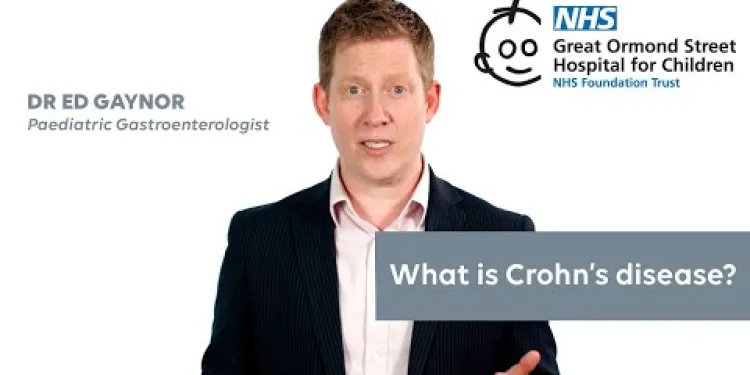
What is Crohn’s disease and how is it treated?
Relevance: 80%
-
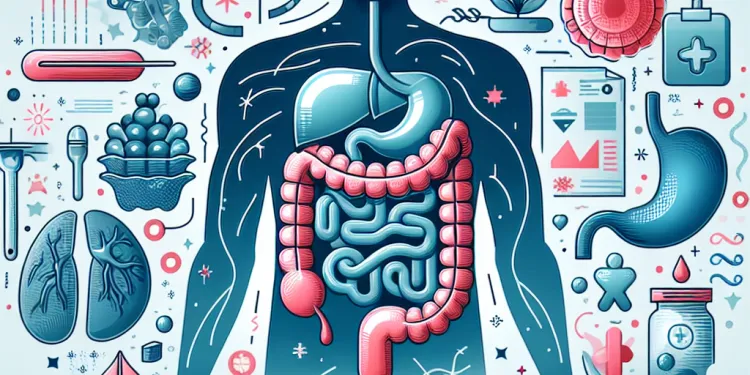
Are there any complications associated with Crohn's disease?
Relevance: 79%
-
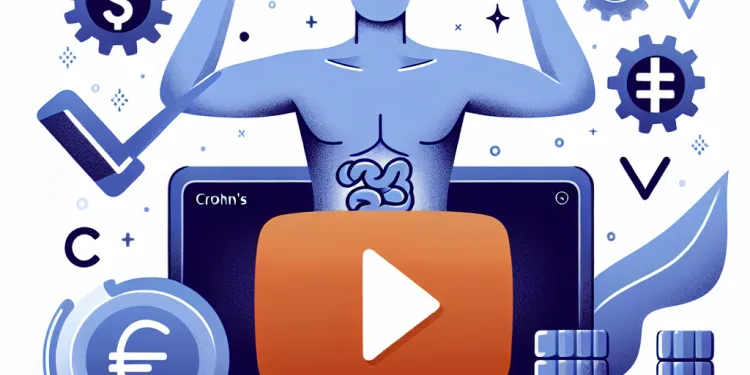
What are the common symptoms of Crohn's disease?
Relevance: 79%
-
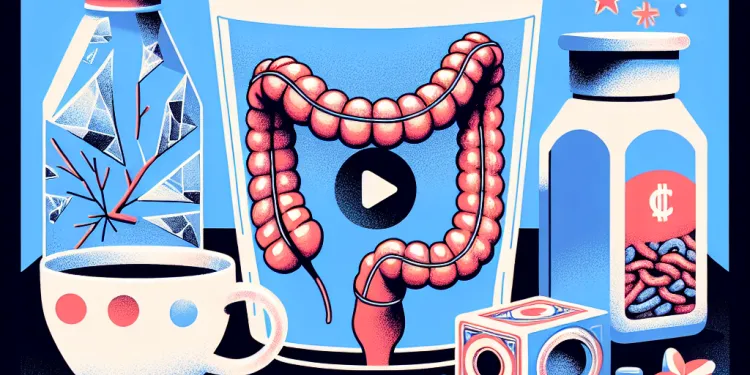
Can stress make Crohn's disease worse?
Relevance: 77%
-
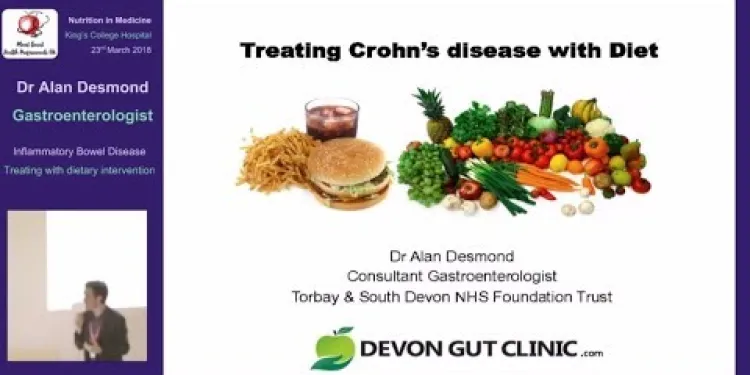
What is the best diet for Crohn’s disease?
Relevance: 77%
-

Can children develop Crohn's disease?
Relevance: 77%
-
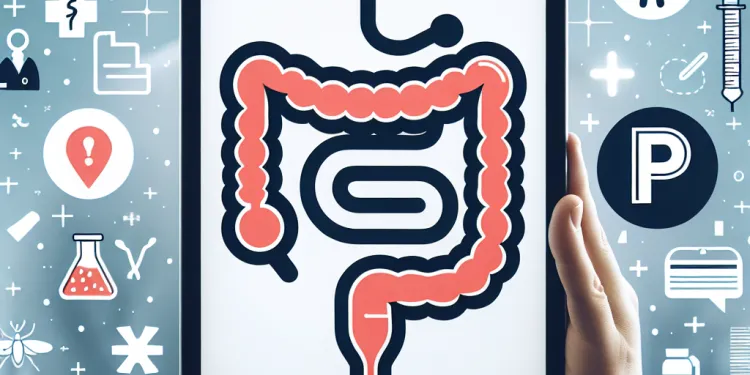
Is surgery necessary for Crohn's disease?
Relevance: 76%
-
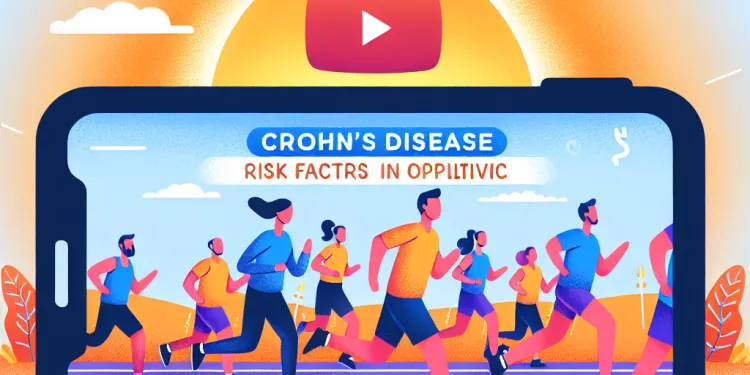
Who is at risk of developing Crohn's disease?
Relevance: 76%
-
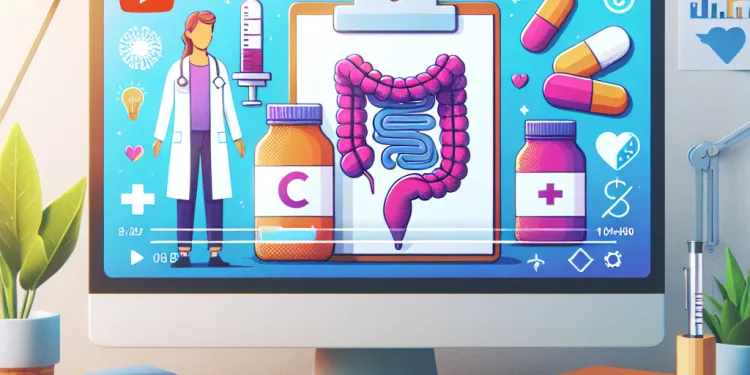
What treatments are available for Crohn's disease?
Relevance: 75%
-
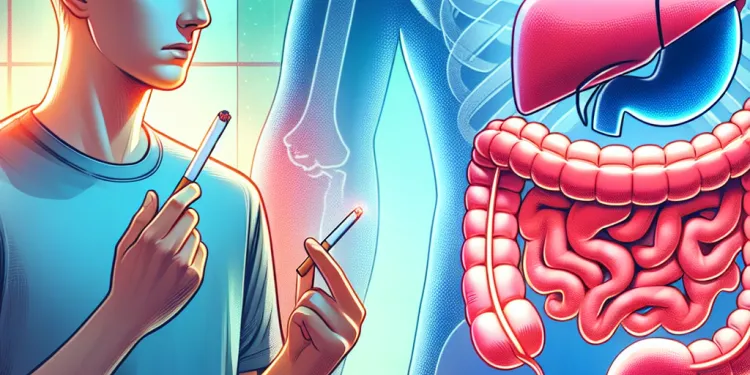
How does smoking affect Crohn's disease?
Relevance: 75%
-

What support is available for people with Crohn's disease in the UK?
Relevance: 72%
-

What dietary changes can help manage Crohn's disease?
Relevance: 69%
-
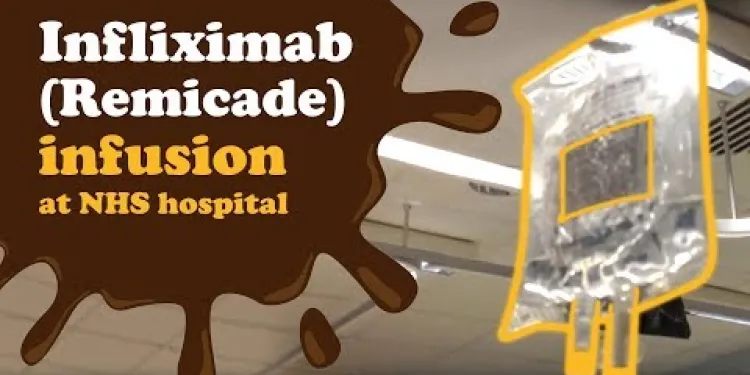
Infliximab infusion (Remicade) for Crohns Disease at Addenbrookes NHS hospital
Relevance: 60%
-
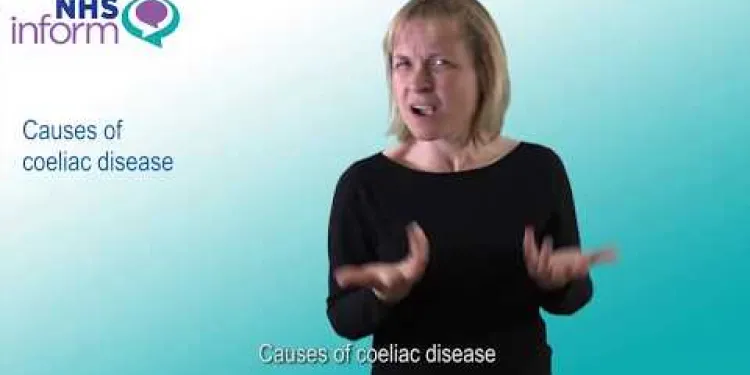
Causes of coeliac disease
Relevance: 48%
-

What causes Huntington's disease?
Relevance: 46%
-
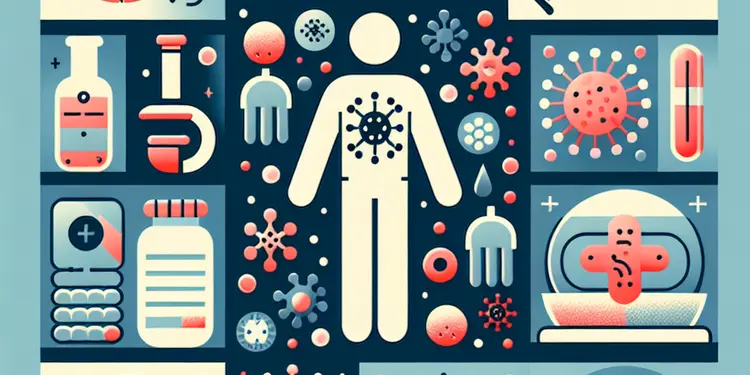
What causes flesh-eating disease?
Relevance: 45%
-

What causes Alzheimer's disease?
Relevance: 45%
-

What causes motor neurone disease?
Relevance: 43%
-

Can vaccines cause the diseases they protect against?
Relevance: 43%
-
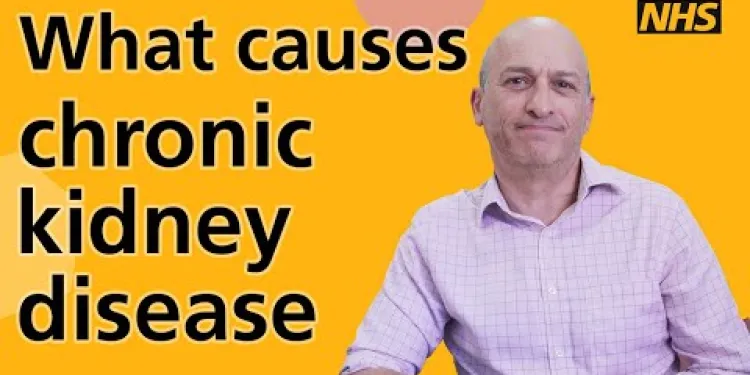
What causes chronic kidney disease?
Relevance: 42%
-

Can flesh-eating disease cause long-term complications?
Relevance: 40%
-
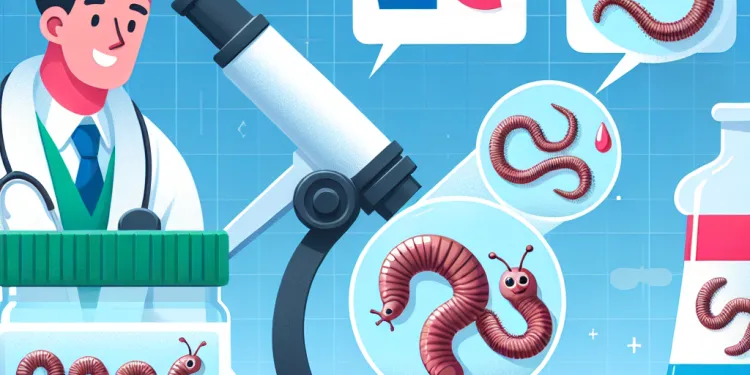
Can screw worms cause zoonotic disease?
Relevance: 38%
-

What Causes Erectile Dysfunction (ED) - Disease or Symptom - NHS A to Z - Dr Gill
Relevance: 35%
-

What is Huntington's disease?
Relevance: 31%
-
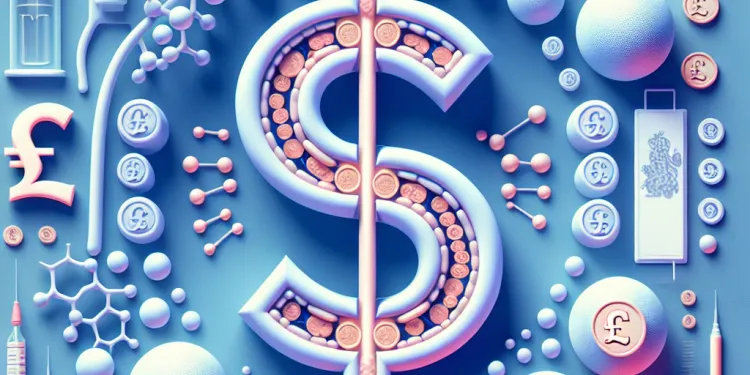
What is Mitochondrial disease?
Relevance: 31%
-
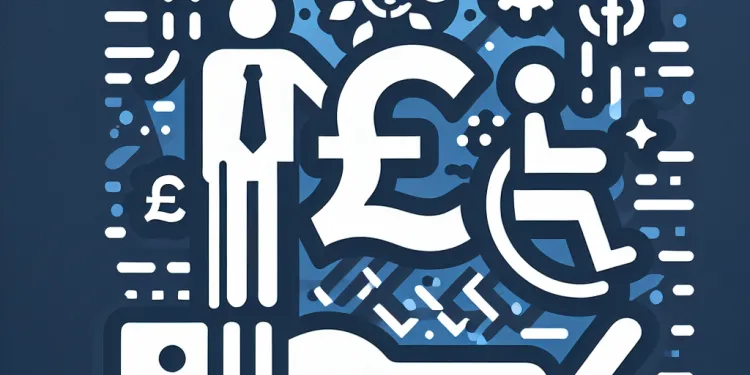
What is Parkinson's disease?
Relevance: 31%
-

Liver disease | NHS
Relevance: 31%
-

Can Lyme disease cause long-term health problems?
Relevance: 31%
-
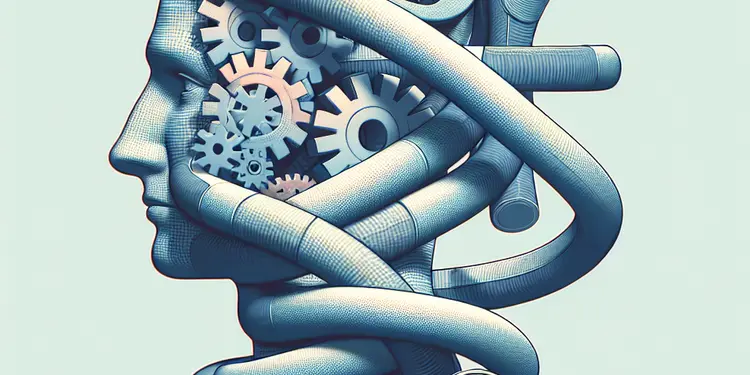
Is Huntington's disease fatal?
Relevance: 31%
-

Is flesh-eating disease contagious?
Relevance: 31%
-
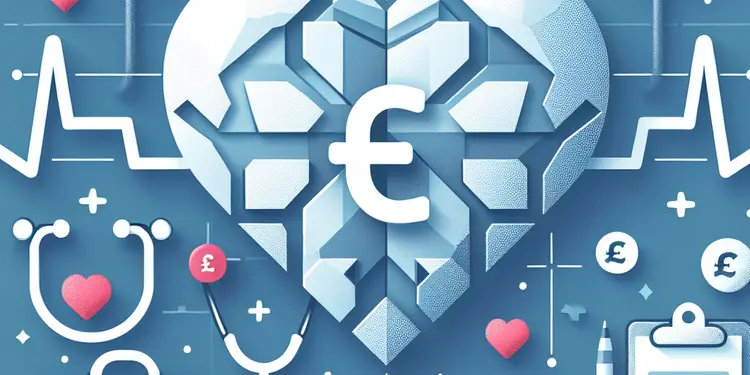
What causes heart failure?
Relevance: 30%
-
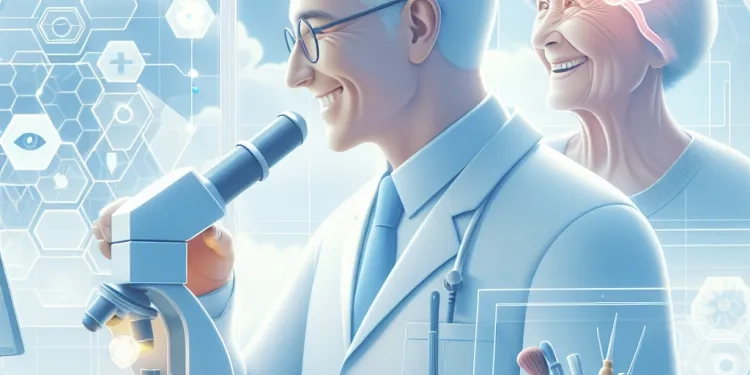
What is Alzheimer's disease?
Relevance: 30%
-

Coeliac Disease: Session 1: What is Coeliac Disease?
Relevance: 30%
-

What causes hypotony?
Relevance: 30%
-
What causes mitochondrial disease?
Relevance: 30%
-
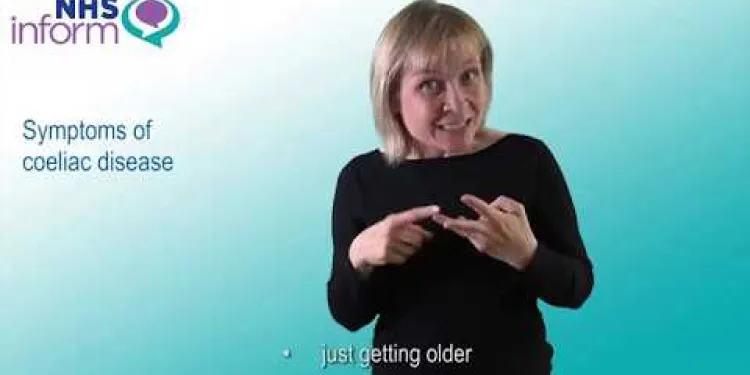
Symptoms of coeliac disease
Relevance: 30%
Understanding the Causes of Crohn's Disease
Crohn's disease is a type of inflammatory bowel disease (IBD) that can cause significant digestive problems, impacting the lives of many people in the United Kingdom and worldwide. Despite extensive research, the exact causes of Crohn's disease remain unclear. However, experts believe that several factors, including genetic, environmental, and immune system components, play a role in its development.
Genetic Factors
Genetics is considered a major contributor to the risk of developing Crohn's disease. Research indicates that people with a family history of IBD are more likely to develop the condition themselves. Specific genes, such as NOD2/CARD15, have been linked to Crohn's disease, suggesting a hereditary component. However, possessing these genetic markers does not guarantee one will develop Crohn's, as it often requires other factors to trigger the disease.
Environmental Factors
Environmental factors are believed to influence the onset of Crohn's disease. Smoking is a well-documented risk factor, significantly increasing the chances of developing the disease. Additionally, diet and lifestyle factors, including high intake of refined sugars and low fiber, may contribute to disease onset. Interestingly, those living in urban areas, like many regions in the UK, have a higher incidence of Crohn's disease, suggesting certain lifestyle and environmental exposures might play a role.
Immune System Contribution
The immune system's response is also an essential component in the development of Crohn's disease. Normally, the immune system defends against harmful microbes, but in people with Crohn's, this defense system mistakenly attacks the digestive tract, leading to chronic inflammation. It is unclear what triggers this abnormal immune response, but it likely involves a complex interaction between gut microbiota and the immune system.
Conclusion
Although the precise cause of Crohn's disease is not fully understood, genetic predisposition, environmental factors, and immune system abnormalities seem to be significant contributors. Further research is necessary to fully comprehend how these elements interact in the development of Crohn's disease. Understanding these causes could lead to better prevention and treatment strategies for those affected in the UK and beyond.
Knowing Why Crohn's Disease Happens
Crohn's disease is a problem that affects the tummy and bowels. It is not good for digestion, which is how our body uses food. Many people in the UK and all over the world have Crohn's disease. We don't know exactly why Crohn's disease happens. But, scientists think it is caused by a mix of family genes, things around us, and how our body's defense system works.
Family Genes
Family genes are important in Crohn’s disease. This means if someone in your family has it, you could get it too. Some special genes like NOD2/CARD15 are linked to Crohn's. But just because you have these genes, it does not mean you will definitely get Crohn’s. You need other things to happen too.
Things Around Us
Things in our life and around us can start Crohn's disease too. Smoking is a big risk and can make Crohn’s more likely. Eating lots of sugary foods and not enough fiber can also be bad. People who live in cities, like parts of the UK, can get Crohn’s more often. This shows that how we live and where we live can make a difference.
Body's Defense System
Our body's defense, which keeps us safe from germs, can be part of Crohn's disease too. Usually, it fights bad things like germs. But in Crohn’s, it gets confused and attacks our own tummy and bowels. This causes pain and swelling. We don’t know why this happens, but it may be because of tiny bugs in our tummy and how they interact with our body.
Conclusion
We are not sure why Crohn’s disease happens, but we know family genes, life around us, and body defense are important. Scientists need to learn more about these to help stop Crohn’s disease and help people who have it. This will help people in the UK and everywhere else feel better.
Frequently Asked Questions
What is Crohn's disease?
Crohn's disease is a chronic inflammatory condition of the gastrointestinal tract. It is one type of inflammatory bowel disease (IBD).
What causes Crohn's disease?
The exact cause of Crohn's disease is unknown, but it is believed to result from a combination of genetic, environmental, and immune system factors.
Is Crohn's disease hereditary?
There is a genetic component to Crohn's disease, meaning it can run in families. However, not everyone with a family history of Crohn's will develop the disease.
Can stress cause Crohn's disease?
Stress does not cause Crohn's disease, but it can exacerbate symptoms in individuals who already have the condition.
Is there a link between diet and Crohn's disease?
While diet does not cause Crohn's disease, certain foods may trigger or worsen symptoms in some individuals.
What are the environmental triggers for Crohn's disease?
Environmental factors such as smoking, urban living, and possibly certain infections are believed to play a role in triggering Crohn's disease in genetically susceptible individuals.
How is the immune system involved in Crohn's disease?
Crohn's disease involves an abnormal immune response where the body's immune system attacks the gastrointestinal tract, leading to inflammation.
Are there any known infections that trigger Crohn's disease?
Certain infections, such as those caused by bacteria or viruses, may act as a trigger for Crohn's disease, but no direct causal relationship has been established.
Is smoking linked to Crohn's disease?
Yes, smoking is a known risk factor for developing Crohn's disease and can worsen its symptoms and outcomes.
Do antibiotics play a role in causing Crohn's disease?
Some research suggests that the use of antibiotics, especially in early life, may alter the gut microbiota and could be linked to the development of Crohn's disease.
Can Crohn's disease affect anyone?
Crohn's disease can affect people of any age, but it is most commonly diagnosed in young adults between the ages of 20 and 30.
Is there a cure for Crohn's disease?
There is currently no cure for Crohn's disease, but there are treatments available that can help manage symptoms and maintain remission.
Can lifestyle changes help manage Crohn's disease?
Yes, lifestyle changes such as a healthy diet, regular exercise, and smoking cessation can help manage symptoms and improve quality of life for individuals with Crohn's disease.
Are there any complications associated with Crohn's disease?
Yes, complications can include intestinal strictures, fistulas, malnutrition, and an increased risk of colon cancer, among others.
How can Crohn's disease be diagnosed?
Crohn's disease is diagnosed through a combination of clinical evaluation, laboratory tests, imaging studies, and endoscopic procedures to examine the gastrointestinal tract.
What is Crohn's disease?
Crohn's disease is a sickness that makes your tummy hurt. It affects the part of your body that helps digest food. This part is called the digestive system.
Sometimes, people with Crohn's disease feel tired. They may also have a sore tummy often. Eating healthy food and seeing a doctor can help.
If you or someone you know has trouble reading about Crohn's disease, try listening to stories or using pictures to learn more. Talking with someone who knows a lot about it can also help.
Crohn's disease is a long-lasting problem that makes parts of your tummy (belly) sore. It is one type of illness that affects the gut called inflammatory bowel disease (IBD).
What makes Crohn's disease happen?
We do not know what exactly causes Crohn's disease. But, we think it happens because of some genes, things around you, and how your body's defense system works.
Can you get Crohn's disease from your family?
Crohn's disease can run in families. This means if someone in your family has Crohn's, you might get it too. But not everyone with Crohn's in their family will get the disease.
If you are worried, ask a doctor. They can help explain more about Crohn's and how it affects people.
Using pictures or videos can help you understand Crohn's better. There are also people who can share their Crohn's stories to help you learn more.
Some people can get Crohn's disease because of their genes. This means it can happen in families. But not everyone in the family will get Crohn's, even if someone else in the family has it.
If you find this hard to read, you can ask someone to read it with you. You can also use an app that reads text out loud.
Does stress make Crohn's disease happen?
Stress is not known to cause Crohn's disease. But, stress can make the symptoms worse. It is important to stay calm and relaxed. Breathing exercises and talking to a trusted person can help. Always talk to a doctor if you feel sick.
Stress does not cause Crohn's disease. But, if someone already has Crohn's disease, stress can make the symptoms worse.
Does what you eat affect Crohn's disease?
Food does not cause Crohn's disease. But, some foods might make the symptoms worse for some people.
What can cause Crohn's disease to start?
Crohn's disease is a sickness in the tummy. Some things can make it start or get worse. Here are some things to watch out for: - **Smoking:** If you smoke, try to stop. Smoking can make Crohn's disease worse. - **Food:** Some foods can upset your tummy. Try to eat healthy foods and see if any foods make your tummy hurt more. - **Stress:** Feeling worried or stressed can make Crohn's disease worse. Try relaxing activities like drawing or listening to music. - **Germs:** Sometimes, germs like bugs can upset your tummy. Ask a grown-up or a doctor for help. They can give you more tips.Things around us, like smoking, living in a city, and maybe some infections, might make Crohn's disease start in people who can get it because of their genes.
Here are some tips to help understand the text: - Read slowly and take your time. - Highlight or underline important words. - Use pictures to help you understand. - Ask someone to explain any parts that are hard to understand.What does the immune system do in Crohn's disease?
The immune system keeps us healthy by fighting germs.
In Crohn's disease, the immune system goes wrong.
It attacks the body instead of germs.
This can cause a sore tummy and other problems.
If you find reading hard, try using audio books or asking someone for help.
Crohn's disease happens when the body's defense system attacks the tummy area. This causes swelling and soreness inside.
Can Crohn's disease start because of an infection?
Some infections might make Crohn's disease start. Doctors are not sure which ones, but they think germs can be involved.
If you want to know more, you can talk to a doctor or look at health websites. There are also apps that can read aloud for you.
Sometimes germs, like bacteria or viruses, can make Crohn's disease start. But we don't know for sure if they cause it.
Does smoking cause Crohn's disease?
Can smoking make Crohn's disease worse?
Crohn's disease is a sickness of the gut. Smoking is not good for your health and can make Crohn's disease worse.
If you or someone you know has Crohn's disease and smokes, it is a good idea to stop smoking. This can help you feel better.
To stop smoking, you can talk to a doctor. You can also use things like patches or gum to help.
It might be helpful to get support from friends and family too. They can help you stay strong and not smoke.
Yes, smoking can make you more likely to get Crohn's disease. It can also make the symptoms worse.
Can antibiotics cause Crohn's disease?
Antibiotics are medicines that help fight infections. There is a disease called Crohn's disease. It makes your tummy hurt and can cause other problems. Some people think that taking antibiotics might be linked to getting Crohn's disease. If you want to understand more, you can ask a doctor or someone who knows a lot about medicine. You can also use tools like picture stories or talk with someone who can explain it simply.Some studies say using antibiotics, especially when you are young, can change the germs in your tummy. This might be related to getting Crohn's disease.
Can Crohn's disease make people sick?
Yes, Crohn's disease can make anyone sick. It is a problem with your tummy. It can happen to kids and grown-ups. If you have Crohn's, you might need to see a doctor. The doctor can help you feel better.
If you find it hard to read or understand this, you can ask a friend or family member to help you. They can read it with you. You can also use a computer or a phone to read it out loud. This can make it easier to understand.
Crohn's disease can happen to anyone, but it mostly starts in young adults who are 20 to 30 years old.
Can Crohn's disease be fixed?
Crohn's disease is a sickness in your tummy. Doctors do not have a fix for it yet.
People with Crohn's disease sometimes feel better with special medicine. Eating the right foods can help too.
If you have Crohn's, you should talk to a doctor. They can tell you the best ways to feel better.
Looking at helpful pictures and using apps can make learning about Crohn's easier. Asking someone to read with you can also help.
There is no cure for Crohn's disease right now. But, there are treatments that can help you feel better and keep symptoms away.
Can changing how you live help with Crohn's disease?
Yes, you can feel better if you change some things in your life. Eat healthy food, exercise often, and stop smoking. These changes can help people who have Crohn's disease feel better and live a happier life.
What problems can happen with Crohn's disease?
Crohn's disease can cause some problems. These problems are called complications. Here are some things to know:
- Blockages: Crohn's can make the gut narrow. This can block food.
- Sores: Sores can happen in the gut. These are called ulcers.
- Holes in the gut: Big sores can make holes in the gut wall. This is a serious problem.
- Painful joints: Some people get pain in their joints, which are where two bones meet.
- Eye or skin problems: Sometimes, Crohn's can cause problems with eyes or skin.
Ask a doctor for help if you have any of these problems. A doctor can tell you how to feel better.
Using a picture dictionary or asking someone to read with you can also help you understand more about Crohn's disease.
Yes, sometimes there can be problems. These problems might be: the intestines becoming narrow, tunnels forming between parts of the intestines, not getting enough nutrients from food, and a higher chance of getting colon cancer.
How do doctors find out if someone has Crohn's disease?
Doctors have ways to find out if someone has Crohn's disease. They might:
- Ask questions about how you feel and any problems with your stomach.
- Look at your body to check for signs of Crohn's disease.
- Do special tests, like blood tests, to see if everything is okay.
- Take pictures inside your tummy using tools like a camera.
If it's hard to understand, you can:
- Ask someone you trust to explain it.
- Write down what the doctor says and look at it later.
- Use pictures or videos to help you learn.
Doctors find out if someone has Crohn's disease by doing several checks. They ask questions about how you feel, do some tests in the lab, take special pictures inside your body, and use a tiny camera to look inside your tummy.
Useful Links
This website offers general information and is not a substitute for professional advice.
Always seek guidance from qualified professionals.
If you have any medical concerns or need urgent help, contact a healthcare professional or emergency services immediately.
Some of this content was generated with AI assistance. We’ve done our best to keep it accurate, helpful, and human-friendly.
- Ergsy carfully checks the information in the videos we provide here.
- Videos shown by Youtube after a video has completed, have NOT been reviewed by ERGSY.
- To view, click the arrow in centre of video.
- Most of the videos you find here will have subtitles and/or closed captions available.
- You may need to turn these on, and choose your preferred language.
- Go to the video you'd like to watch.
- If closed captions (CC) are available, settings will be visible on the bottom right of the video player.
- To turn on Captions, click settings .
- To turn off Captions, click settings again.
More Items From Ergsy search
-

What causes Crohn's disease?
Relevance: 100%
-

Is Crohn's disease contagious?
Relevance: 87%
-

Is there a cure for Crohn's disease?
Relevance: 85%
-

How is Crohn's disease diagnosed?
Relevance: 81%
-

What is Crohn’s disease and how is it treated?
Relevance: 80%
-

Are there any complications associated with Crohn's disease?
Relevance: 79%
-

What are the common symptoms of Crohn's disease?
Relevance: 79%
-

Can stress make Crohn's disease worse?
Relevance: 77%
-

What is the best diet for Crohn’s disease?
Relevance: 77%
-

Can children develop Crohn's disease?
Relevance: 77%
-

Is surgery necessary for Crohn's disease?
Relevance: 76%
-

Who is at risk of developing Crohn's disease?
Relevance: 76%
-

What treatments are available for Crohn's disease?
Relevance: 75%
-

How does smoking affect Crohn's disease?
Relevance: 75%
-

What support is available for people with Crohn's disease in the UK?
Relevance: 72%
-

What dietary changes can help manage Crohn's disease?
Relevance: 69%
-

Infliximab infusion (Remicade) for Crohns Disease at Addenbrookes NHS hospital
Relevance: 60%
-

Causes of coeliac disease
Relevance: 48%
-

What causes Huntington's disease?
Relevance: 46%
-

What causes flesh-eating disease?
Relevance: 45%
-

What causes Alzheimer's disease?
Relevance: 45%
-

What causes motor neurone disease?
Relevance: 43%
-

Can vaccines cause the diseases they protect against?
Relevance: 43%
-

What causes chronic kidney disease?
Relevance: 42%
-

Can flesh-eating disease cause long-term complications?
Relevance: 40%
-

Can screw worms cause zoonotic disease?
Relevance: 38%
-

What Causes Erectile Dysfunction (ED) - Disease or Symptom - NHS A to Z - Dr Gill
Relevance: 35%
-

What is Huntington's disease?
Relevance: 31%
-

What is Mitochondrial disease?
Relevance: 31%
-

What is Parkinson's disease?
Relevance: 31%
-

Liver disease | NHS
Relevance: 31%
-

Can Lyme disease cause long-term health problems?
Relevance: 31%
-

Is Huntington's disease fatal?
Relevance: 31%
-

Is flesh-eating disease contagious?
Relevance: 31%
-

What causes heart failure?
Relevance: 30%
-

What is Alzheimer's disease?
Relevance: 30%
-

Coeliac Disease: Session 1: What is Coeliac Disease?
Relevance: 30%
-

What causes hypotony?
Relevance: 30%
-
What causes mitochondrial disease?
Relevance: 30%
-

Symptoms of coeliac disease
Relevance: 30%


